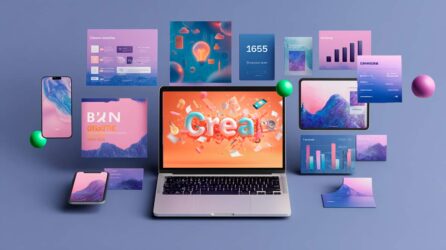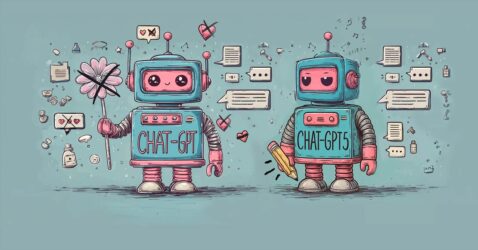Training and internal communication are essential pillars within modern corporate strategies. Both elements are fundamental to transforming organizations and connecting people, especially in a context where continuous learning and effective communication drive organizational development.
Learning and communication as strategic pillars
At Oxean, we design customized learning and transformation experiences, combining different types of resources and solutions. Whether in-person, online, or hybrid, we innovate with tailor-made training programs focused on the specific topics of your business or industry.
Adapting to a changing environment: The need for new skills
In the past, which now seems very distant, job training could be seen as a complement or a way to stay up to date. Today, the landscape is quite different. According to a study by the World Economic Forum, 60% of workers will need training before 2027.

The impact of artificial intelligence on job skills
This study is one of many that confirm what we are all already experiencing: it is essential to learn new skills. The changes brought by digital ecosystems, driven by constant developments in artificial intelligence, still have an impact that is difficult to fully calculate.
That is why training and education are moving to the center of attention. The study details
that 44% of job skills will undergo changes over the next five years. The development of leadership and social influence skills will be among the top priorities for companies. These are times of rapid change that require strategic learning.
Training: The value of specialized consulting
In addition, business environments are being impacted by increasingly complex factors, reflecting broader realities where we live immersed in a BANI world. This makes it necessary for organizational culture to seek new solutions to create a healthy work environment and empower team growth. Here, the interaction between training and communication can add great value.

Training and internal communication
Understanding the specific needs of each industry
n both internal communication strategies and training experiences, the first step is always to listen to each client’s needs. Our experience in multiple industries allows us to interpret these needs based on the unique characteristics of each business.
Industries such as:
Finance
Healthcare
Energy
Food
Retail
Automotive
Cosmetics and beauty

among many others, are part of the sectors we have provided solutions for.
In every case, we consider the particular needs of each field as well as the cross-cutting factors that affect team dynamics.
In addition, personal interactions and the needs of organizational culture are essential. Starting from a strategic approach, we perform a situational diagnosis and define the steps to follow.
Selecting the right training format
When we talk about training, we can find multiple formats: virtual campuses, corporate universities, simulations, webinars, workshops, gamification, online courses, microlearning, video learning, and many others.
Custom training program options
Each need is unique and requires a specific format. We also take into account the technological and organizational capabilities of the company. For example, designing a training program for a company with a large number of frontline employees is not the same as for a B2B company. These are completely different realities.
There are training and development options for every scale and type of business. In many cases, we recommend starting with a specific pilot experience. Later, it’s possible to develop a scalable training program over a longer period.
Personalized training services
We focus on each client’s specific business to offer training programs that meet their needs. Among the options we provide:
- eLearning content for your platform, either synchronous or asynchronous
- Training programs led by expert professionals, either in-person or via webinar
We cover key topics such as:
Diversity, equity, and inclusion
Agile talent management
Management 3.0
Agile leadership
Communication skills
Artificial intelligence applied to internal communication
We have interdisciplinary teams of specialists in teaching, educational content, design, and programming, among many others.
Integrating internal communication into training programs
The health of organizations is a complex dynamic with multiple dimensions. One of them is internal communication. Besides having a solid training program, it’s important to communicate it effectively to employees.

Benefits of effective internal communication
Having growth opportunities within the organization is highly valued by employees. Being informed and aware of training options, as well as staying up to date on program progress, positively impacts the work environment and helps strengthen engagement.
Therefore, from the moment a training program is planned, it is important to coordinate with the internal communication team to determine how the program will be communicated to the organization’s employees.

Campaigns to promote training actions
Launching internal communication campaigns to promote training initiatives within companies is essential. To do this, the campaign must be strategically planned, sustained over time, and aligned with employee needs.
Emotional strategies to increase engagement
One key is to appeal to emotion. Within an organization, people want to grow. Offering a path to do so creates motivation and drives engagement. Therefore, communication should go beyond information about the course content or format.
To create a high-impact campaign, it is crucial to show the concrete benefits that training can have in day-to-day work. This idea can also extend to employees’ personal lives. A helpful guiding concept for the campaign is to show that training positively affects each person’s life, beyond the workplace. In this case, the aspirational element gives meaning to the information.
Thinking about lifelong learning
Among the complex dimensions that make up the organizational ecosystem, the concept of lifelong learning is emerging, aligned with global trends.
Generational integration through lifelong learning
Today, companies include multiple generations: centennials, millennials, and the silver generation. This generates tension but also brings many benefits—if managed correctly.

To achieve this, corporate training programs take center stage. Through different types of courses—always guided by the idea of lifelong learning—it is possible to meet the needs of different generations. They can even promote intergenerational exchange through mentoring programs or similar initiatives.
Transformation is happening now.
Integrating internal communication and training can be a decisive factor for your company.




